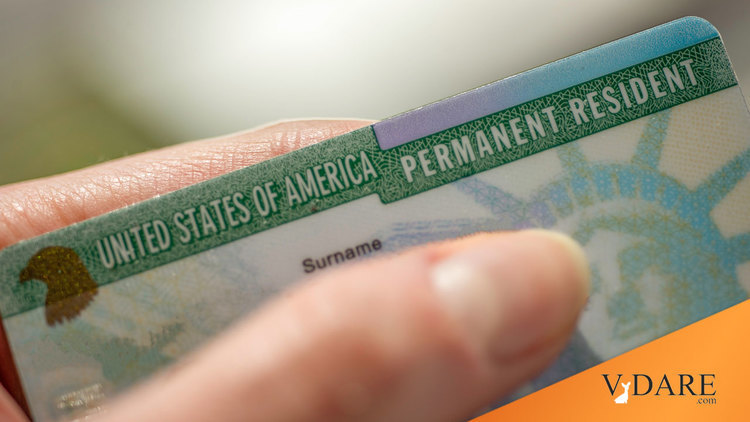


04/18/2002
A Protestant Professor Ponders Pope Jonah
From: John Miano
As is typical with the mainstream media’s typical superficial coverage of immigration issues, coverage on the 245(i) extension has been dominated by what politicians say 245(i) does rather than what the bill and law says it does. In spite of the bill and law being readily available on the Internet, few in the media (and apparently in the Congress and White House) have bothered to actually read it.
A Bush statement to the press described the bill this way.
"Many immigrants who are otherwise eligible to become legal residents will be forced to leave the United States and their families unless a temporary extension is granted."
House Majority Leader Dick Armey, as quoted by Reuters, emphasized the family aspect of the bill:
"What you have is an awful lot of families that are here in this country that do everything humanly possible to comply with the law in the face of an agency (Immigration and Naturalization Service) that doesn’t keep pace with its workload."
Let me paraphrase the Bush Administration’s and Republican leadership’s message on 245(i). It is a measure that allows people who entered the country legally but who have simply overstayed their visas, to apply for green cards. By allowing these otherwise law abiding people to apply without leaving the country, it helps keep families together.
An examination of the bill itself and the applicable law shows the Republican "leadership’s" description of 245(i) is utter nonsense.
A little background: 245(i) refers to a section of the Immigration and Nationality Act. Section 245 in the bill corresponds to 8 USC 1255 in the law code. 8 USC 1255 describes how people who have legally entered the U.S. on a non-immigrant visa may adjust status to a green card. In addition to the requirement that one must have entered the country legally to be eligible, 8 USC 1255(c) lists eight categories of people who entered the country legally who are ineligible.
8 USC 1255(c)(2) is of interest: It bars people who accept illegal employment or those who have not maintained a legal status. But it includes a provision saying that if the violation is not a fault of their own, they are not disqualified. Thus people who entered the country legally and who fell out of status due to INS delays are not prevented from applying. In other words, the protection that Dick Armey claimed is needed is already in the law.
So what does 245(i) do? Read the bill and law and you will find that it allows people who meet residency and sponsorship requirements and who have either entered the country illegally or are in the eight categories listed in 1255(c) to apply for a green card if they pay a $1,000 fine.
In other words, this is an immigration lawyer’s dream law. Everyone that would normally be ineligible becomes eligible.
So 245(i) does not cover those blocked by INS delays or some minor technicality but rather illegal aliens and people excluded because of sound policy.
The Bush Administration’s claim that 245(i) covers people who would "otherwise be eligible" shows it is either not telling the truth or has no idea what the truth is.
Take a look at some of the categories that may not apply for green cards under 1255(c) but become eligible under 245(i). 1255(c)(1) covers sailors who jump ship. It was only a couple of weeks ago that the Bush administration was up in arms over the INS admitting four Pakistani sailors who promptly jumped ship.
How ironic — the administration is simultaneously pushing to allow people who did the same thing to apply for green cards.
1255(c)(6) is the item that should make your blood boil and demonstrates the ineptitude of the Bush administration with regards to immigration policy. 1255(c)(6) is the provision that normally bans terrorists from applying for green cards. 245(i) makes terrorists eligible to apply for green cards.
That’s right. Exactly six months and a day after the September 11th terrorist attacks, two thirds of the U.S. House of Representatives, at the urging of the President, voted for a bill explicitly allowing terrorists to get green cards.
What does it say about the state of America’s border security when the main item on the President’s legislative agenda is a bill permitting terrorists to get green cards?
John Miano won our contest to suggest post 9/11 anti-terrorist immigration policies to the Bush Administration. Giving terrorists green cards was not included.
April 18, 2002